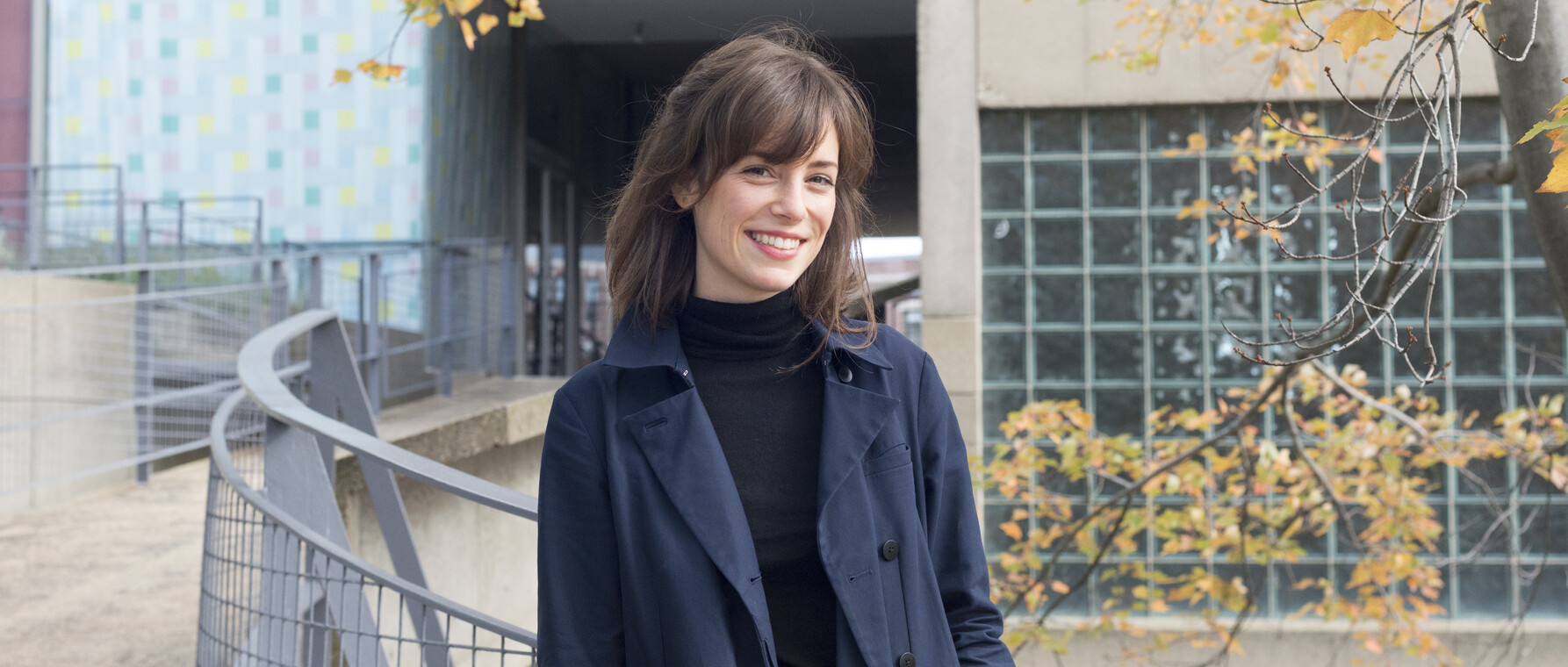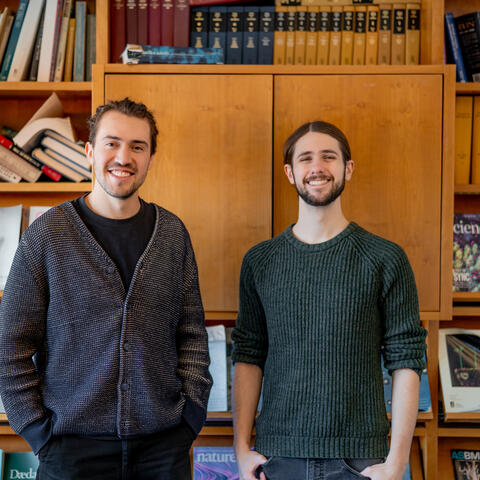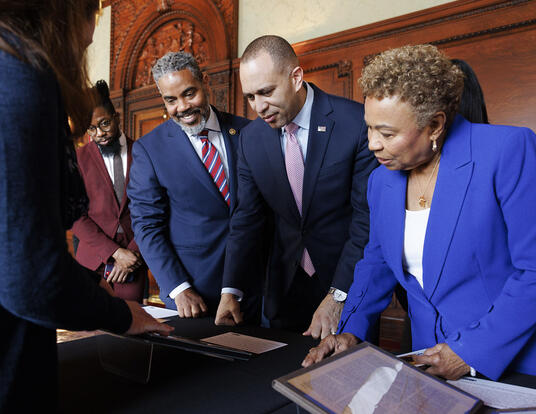A Sense of Place
Resident Advisor Becca Voelcker connects to her Harvard community through film.

Growing up, Becca Voelcker would drive with her parents 20 miles to the local cinema, which showed a foreign film once every month. “This was long before I knew what the word ‘director’ meant or what it was to make a film,” the PhD student in film and visual studies explains. From her early teens, Voelcker was intoxicated by films’ ability to capture the essence of place. “I could almost feel the steam from dumplings cooking in some Hong Kong street vendor’s cart or feel the sand in the desert,” she reminisces. “I was living in North Wales, but somehow I could get a sense of all of it.”
Those monthly trips to other countries via film instilled in Voelcker a love for cinema. “From then on, I became really interested in films which were made in other cultures, that gave you a sense of place. Also in films that gave you a perspective on your own.” These films developed in her a desire to experience other ways of living. This urge would take her from rural Wales to London, then Japan, and now Harvard where Voelcker studies the sense of place, politics, and identity in experimental nonfiction film. According to Voelcker, these films mix a number of genres and styles, straddling the art installation and cinema worlds. “They’re restless,” she describes them. “And that’s exactly where the interest lies for me.”
A Residential Audience
Voelcker’s interest in sense of place extends beyond her academic work, to the four GSAS residence halls located in the North Yard, a short walk from Harvard Square. Conant and Perkins Halls were built in the late 1890s, both in the red brick, Harvard style. The German architect Walter Gropius, who founded the Bauhaus School, designed Child and Richards Hall, which carry his signature straight lines and modernist aesthetic. When Voelcker arrived in Cambridge in 2015, she expected to prefer the two Gropius buildings. “I love architecture,” she explains. “But I like the built-in shelving of Perkins and Conant. I’m very neat,” she adds. “Maybe it’s because of my time in Japan. I like to put everything in cupboards.”
Now in her third year of doctoral work, Voelcker has lived in all four of the residence halls beginning with Richards Hall. “My resident advisor (RA) at the time, Iosif Zhakevich, inspired me to become an RA,” Voelcker says. “I wanted to make people feel as welcome and happy as he had made us feel.”
As an RA, Voelcker is always searching for events that bring people together, often turning to her vast knowledge of cinema for the film series she organizes. “One of the goals is to offer more opportunities for residents, especially those for whom English is not their first language, to practice communicating in English,” she explains. “I also wanted to focus on films that explore what it is like to encounter the US as a foreign country.” Like Voelcker, many of the residents in the halls are international students, and she believes it’s important to acknowledge how different the United States is culturally. “The residence hall community is a great audience for this,” Voelcker believes. “Everyone is coming from a different place, but we’re all sharing the experience of being here—and in pretty turbulent times.”
The first film Voelcker showed was the documentary …And the Pursuit of Happiness by French filmmaker Louis Malle. Malle traveled across the United States interviewing people who were living in America, but were not American. “The film was made in the 1980s in Reagan’s America,” explains Voelcker. “And now we’re in Trump’s America. There are some interesting parallels.”
Change as Political
…And the Pursuit of Happiness perfectly captures the three aspects of Voelcker’s thesis: sense of place, politics, and identity. Voelcker is quick to point out that, while the films she studies are “political,” that does not mean they are about party politics. “When I walk out of the cinema or gallery after seeing a film, I don’t want to be thinking in the same way as when I went in,” Voelcker explains. “I want something to trouble me, so that I leave with more questions than I came with. That, I believe, is political.”
The films that trouble Voelcker the most, that generate the most questions, are those that span two worlds. The worlds that these films straddle are many, from the many genres they invoke, to their ability to fit in both a gallery and a cinema. But, for Voelcker, one of their most interesting aspects is the filmmaker’s willingness to move between countries. “They are often coming from one culture and living in another,” she explains.
These filmmakers, like the directors of the foreign films Voelcker watched as a child, are masters at capturing the sense of a place that resonates so strongly with her. “They’re really thinking about place and what makes place,” Voelcker says. “What are the identities, memories, and physical embodied experiences that form a sense of place?”
Voelcker sees a connection between the films she studies and the community she oversees as an RA. “I love being an RA because you get to know so many people from around the world,” she says. “Meeting people is a way of understanding more about different lives and where they come from, and that’s like watching films from around the world.”
Photo by Molly Akin
Get the Latest Updates
Join Our Newsletter
Subscribe to Colloquy Podcast
Simplecast



